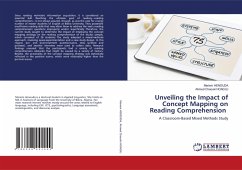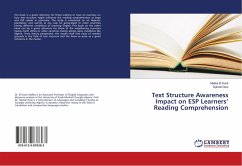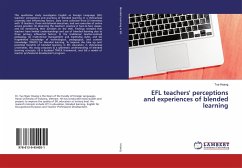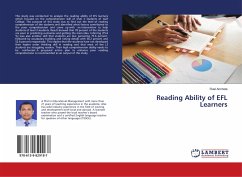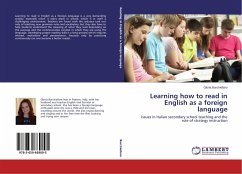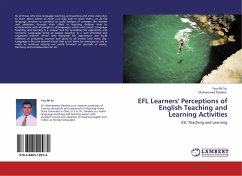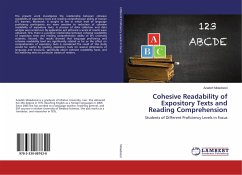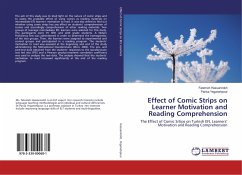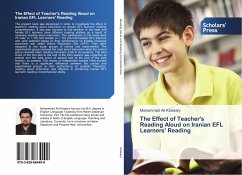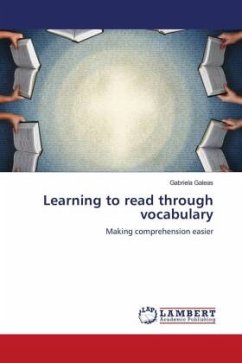
Learning to read through vocabulary
Making comprehension easier
Versandkostenfrei!
Versandfertig in 6-10 Tagen
29,99 €
inkl. MwSt.

PAYBACK Punkte
15 °P sammeln!
This quasi-experimental research study tried to explore the effects of integrated vocabulary instruction on the reading comprehension performance of A1 EFL learners in a public school in Ecuador. A group of students participated in eight reading lessons with different vocabulary instruction (traditional and integrated), after the reading sessions they took part in a reading comprehension test based on literal comprehension questions. The vocabulary knowledge was measured before the reading sessions, then, a post-test and post-delayed test measured the retention of the words learned in class. T...
This quasi-experimental research study tried to explore the effects of integrated vocabulary instruction on the reading comprehension performance of A1 EFL learners in a public school in Ecuador. A group of students participated in eight reading lessons with different vocabulary instruction (traditional and integrated), after the reading sessions they took part in a reading comprehension test based on literal comprehension questions. The vocabulary knowledge was measured before the reading sessions, then, a post-test and post-delayed test measured the retention of the words learned in class. This study found that integrated vocabulary instruction improves learners´ reading comprehension, and it is beneficial for vocabulary learning and retention.




